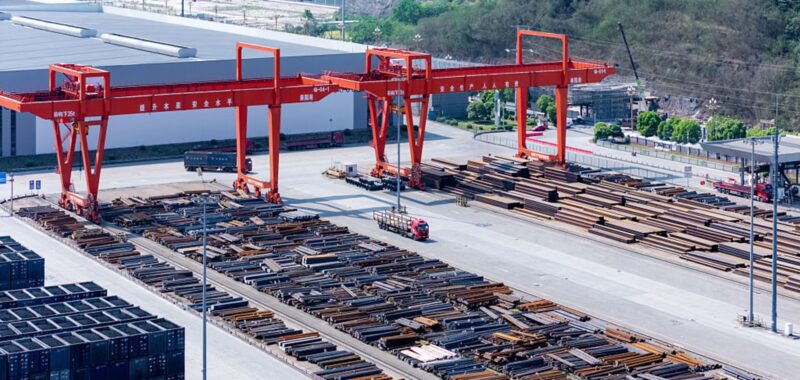BEIJING â China on Thursday said that there were no ongoing discussions with the U.S. on tariffs, despite indications from the White House this week that there would be some easing in tensions with Beijing.
“At present there are absolutely no negotiations on the economy and trade between China and the U.S.,” Ministry of Commerce Spokesperson He Yadong told reporters in Mandarin, translated by CNBC. He added that “all sayings” regarding progress on bilateral talks should be dismissed.
“If the U.S. really wants to resolve the problem … it should cancel all the unilateral measures on China,” He said.
U.S. President Donald Trump and Treasury Secretary Scott Bessent this week indicated that there might be an easing in tensions with China. The White House earlier this month added 145% tariffs on Chinese goods, to which Beijing responded with duties of its own and increased restrictions on critical minerals exports to the U.S.
The commerce ministry’s comments echoed those of Chinese Foreign Ministry Spokesperson Guo Jiakun, who said on Thursday afternoon that there were no ongoing talks, according to state media.
Both spokespersons held to the official line that China would be willing to talk to the U.S. subject to Beijing being treated as an equal.

“China definitely wants to see the trade war deescalate, as it hurts both economies,” said Yue Su
principal economist, China, at The Economist Intelligence Institute. “However, due to the inconsistency of Trump’s policies and the lack of clarity around what he actually wants, China’s strategy has shifted from focusing on ‘what you need’ to ‘what I need.’ Their request for the U.S. to cancel ‘unilateral’ tariffs reflects that shift.”
China earlier this week threatened countermeasures against countries that might make deals with the U.S. at the expense of Beijing’s interests.
“We also need to recognize that this is a ‘whatever it takes’ moment for China in terms of U.S.-China relations,” Su said. “IÂ wouldn’t be surprised if China adopts a more hawkish stance if the U.S. continues to escalate tensions.”
Several Wall Street banks have cut their China GDP outlook in the last few weeks in light of the tariffs and escalating tensions with the U.S.
The Commerce Ministry on Thursday emphasized government and business efforts to help companies sell goods meant for exports to the Chinese market instead.
The U.S. is China’s largest trading partner on a single-country basis. But in the last several years, Southeast Asia has surpassed the European Union to become China’s largest trading partner on a regional basis.


